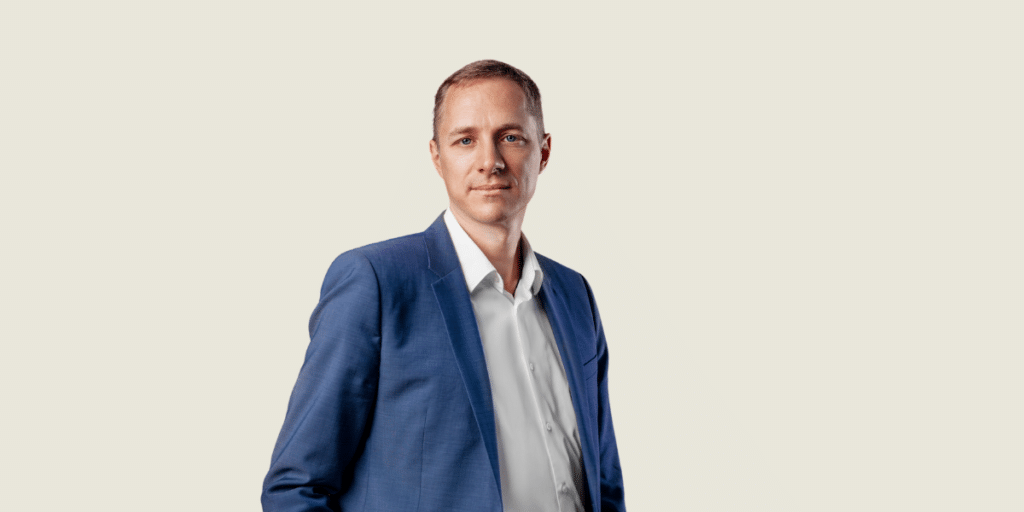I’ve spoken to quite a few people who have changed their perception or who have changed the satisfaction of their sex life, not by changing anything in their sex life, but by changing the way they communicate with their partner, the way that they talk about their
needs and their desires.
Frederik Coene is a Guest in the Enneagram Insights podcast
Frederik Coene (selfpress type 6) believes that true self growth happens, when we face our taboos.
And there is a lot of taboos when it comes to sex.
It can indeed be very vulnerable to talk about – especially with our partner.
The Enneagram can be a gateway.
He is researching the Enneagram and Sexuality and has had focus groups with Valerie Wannamaker.
When he started talking about sex and the Enneagram about five years ago in the Enneagram community, it was not welcomed by everybody.
“But I do believe that through the research that I have been doing and by showing the results of the research, I think that a lot of that scepticism has disappeared”, he says in the podcast.
“I think quite some of the people who were initially quite reserved about the topic are now opening up and seeing the true value and merit of it.”
In this episode of the podcast “Enneagram Insights – On Awareness, Presence and Relationships” Frederik Coene is a guest and he is being interviewed by Charlotte Haase.
The former EU diplomat Frederik Coene is from Belgium and is at the moment of the interview situated in Bali with his family on their two years sabbatical.
Explore and communicate
Frederik Coene believes we need to explore our type, subtypes and instincts in order to achieve presence and connection in our intimate relationships.
Because when we see and understand things about ourselves and our partner, we can communicate with eachother in a better way.
Frederik pinpoints that sex is not made to gratify our egos and blame the partner if our needs are not being met.
We all have a distorted understandings of what sex are meant for and he urges us to explore, why we have sex.
He also shares something that surprised him in his research about type 5 with sexual instincts.
Frederik Coene Quotes from the episode
Midlife Awe
Frederik Coene: “What am I doing with my life? I mean, some people get into some kind of midlife crisis, and I decided to jump into
that period myself.
I don’t call it a midlife crisis. I call it a midlife awe, because I think that it’s a very good moment to just reflect on what have I been doing in the past 20 years of my professional career? What do I want to do next?
Because I feel that in the diplomatic world, I’ve done what I wanted to do, and I’m not sure I want to continue. Maybe after the two year sabbatical, I will decide that, yes, that’s what I want to continue doing and I’ll go back with lots of motivation.
But maybe that’s not what I want to do, because the last few years, I felt that I want to work more with knowledge.
Doing research is what really inspires me. Sharing insights with other people is something that I really enjoy doing, just debating, discussing with other people, trying to dig deeper. And maybe that’s what I want to do in the second part of my professional life.
So what I’m doing during my two year sabbatical is not only reflecting on what I want to do, but also I want to spend my time just writing a bit more about Enneagram, doing more research. I want to continue to do sexuality research and really wrap it up in the next year or so.
I’m also trying to understand the subtypes a little bit better, because I feel that there’s still a certain gap in the literature.
In the last few years, quite a few people have written some very good books, but I still feel that I can also make some contribution to that.”
The Enneagram has taught me …
Frederik Coene:
“The Enneagram helped me to realize so many things. It really showed me what my challenges were in relationships with other people.
And whereas, for example, I always thought that people were, let’s say, moving away from me. I was actually the one who was moving away from them.
It’s because I was not open to them. Just because of my attitude of being sometimes provocative, sometimes skeptical, I was not I was not creating an environment that was very welcoming to some people.
Sure, some people like it, but other people don’t like it. And that was something that I didn’t see. Also, in terms of my relationship with my wife, it really opened up a lot for me because I actually understood, thanks to the Enneagram, that my wife and I have some kind of perfect compatibility of neurosis or we’re like a perfect neurotic match.
It may sound a little bit like clinical, but it’s it’s just about the fact that we really fit well together with our personalities.
My wife is a self-preservation, type 2, and she really wants to hear how she is being loved without having to do anything for it.
She wants to hear she’s loved, not because she deserves it, but just for the fact that she’s there. But she’s very good as a self-preservation, type 2, in creating this kind of very homey atmosphere that when I get back home from work, everything is nice, that it’s calm, that I can really relax.
And as a type 6 – and self-preservation, too, that is really what I what I really value.
I want to come home and just be able to relax.
I can just forget about all the anxiety.
I don’t have to think of what about this, what if this or that happens. It’s really like this safe little cocoon we basically give each other.
Things that we require, but we don’t really want to ask for it.
And the Enneagram really helped me to see that because from one side, it’s I mean, it’s let’s say very romantic, right, that there’s kind of compatibility here. But from the other side, it can also be destructive.
From the other side, it’s also. There is a certain lack of honesty, you could say there, because it’s being happy with things that are unspoken, but you’re actually still silently expecting them.
And through the Enneagram, both my wife and I were able to verbalize some of these things, some of these patterns that we would not talk about, actually.”
Sexuality is part of spiritual growth
Frederik Coene:
“Sex and sexuality is very often taken out of the equation when people are doing their spiritual growth, self-development and so on.
There are certain movements within the self-development community who somehow believe that if you’re a spiritual being, then you should just completely forget about sex.
Yes, maybe if you end up in an enlightened state, if you are holy, you probably no longer have sexual needs. But we’re not there yet. I personally have yet to meet somebody who’s at that stage.
So as long as we’re not there, sex is going to be part of our human lives.
And just by taking it out of the equation, you’re not going to move far. At the end of the day, if you look at it, I believe that most people have issues around sex.
We may not be aware of them, but there is something there and we don’t have a vocabulary to deal with it.
We don’t know how to communicate about it. We’re not able to give it a place into our own path. We don’t know how this actually fits into our self-development work. And I actually want to offer that language, that knowledge, this conceptual framework.
Because actually, it’s all pretty straightforward and easy. I mean, once you understand how sex relates to the types, the instincts, levels of development, it becomes also obvious.
And I believe that true self-growth happens when you are facing your taboos.
It’s not by working with the things that you’re good at that you’re going to truly grow as a human being. It’s only if you tackle the true challenges.
But if you have a taboo on these challenges, then how are you going to grow?
So I want to take that taboo away.”
Vulnerability and the Enneagram as a bridge for honest communication
Frederik Coene:
“It’s very difficult to deal with sex if you’re not vulnerable.
And that brings us to the topic of communication, because what I have come to understand is that when there are problems in a sexual relationship, very often it’s just about changing the communication about sex.
It’s not about doing something else. It’s not about experimenting more. It’s not about some different positions or something like that.
I’ve spoken to quite a few people who have changed their perception or who have changed the satisfaction of their sex life, not by changing anything in their sex life, but by changing the way they communicate with their partner, the way that they talk about their
needs and their desires.
And even if their needs are not met, the fact that they were able to voice it, the fact that they were heard by their partner is already enough for them to say, I feel seen.
I believe that having the conceptual framework of sex and the Enneagram somehow depersonalizes it. If you can talk about sex with your partner, not from the sense that this is what I feel, this is what I desire.
But if you can say that, well, hey, did you know that sevens deal with sexuality in this and that way?
And then the partner can say, well, yeah, you know that ones deal with sex in this and that way. It’s not about yourself anymore.
It’s providing this kind of bridge. It’s like the door into the discussion.
You’re not talking about yourself. You’re talking about archetypes, about caricatures. You can laugh about it. And if you can laugh about these caricatures, then you can more easily also start talking about yourself.
You can become curious about your partner without feeling there is something wrong with your partner, because very often when people face some challenges in their sexual relationship, most often they’re just going to blame the partner.
Most often it’s like, well, my approach is the right one, but there’s something wrong with my wife, there’s something wrong with my husband.
The moment you really understand what is happening, if you understand how your spouse is programmed sexually, then the only solution is to accept that. It doesn’t mean you like it.
At the end of the day, we’re still humans, we still have our preferences, but at least you’re no longer going to blame the partner.
And once you’re no longer blaming each other, then it becomes then I believe that most of the issues just sort themselves out.”
Sex was not meant for ego gratification
Frederik Coene:
“If you really ask people, like, why do you have sex? Most of the reasons people will come up with are not related at all, which is reproduction, recreation or relation.
It’s all going to be about ego gratification.
Now, if you have sex in order to seek ego gratification, you’re going to run into problems. Sex was not meant to be for ego gratification.
So, for example, type one may have sex because they think that having sex is the right thing to do in a relationship. And they have some heard that a couple should have sex twice a week. So they will have sex twice a week.
And they have heard that certain positions are right and some positions are wrong. Of course, very much if they are inspired by certain religious traditions and that is what they are going to stick to. So there is no spontaneity in there.
So it’s all about doing what they think is the right thing to do.
Other types may have sex because they want to feel validated.
They want to feel loved. Well, sorry, sex is not there to feel loved. Yes, it can be an expression of love, an expression of caring for the other person.
But if it is to feel that I am being loved, then you don’t show up in an authentic way.
You’re not present. You are driven by your desire to feed that ego. And all nine types have ways of abusing sex to gratify their own ego.
But as sex is not made to gratify the ego, you’re going to be upset at the end of the day because it’s not going to gratify your ego. It may be fun, you may enjoy it, but it’s not going to give you the needed effect. So if you’re not getting out of sex what you are seeking, who’s guilty?
Of course, it’s a partner because the partner is just weird. The partner has some kind of strange views about sex.
But in reality, we all have some kind of distorted perceptions of what sex is meant to be for. So I think that the first thing is that if people can understand when they are having sex for the wrong reasons.
It doesn’t mean that suddenly you have to stop having sex. It’s just that you understand, you make it more conscious. If you still end up having sex because you want to feel love, well, so be it.
But at least if it is conscious, then you cannot be upset if you’re not getting what you’re looking for. So I think that’s the first thing, that people can have a discussion as a couple about why do we have sex?
Many people have sex, but they never talk about why they do this.
And I think that can be a very interesting entry point for communication.
And just using the caricatures of the type, again, depersonalizes it.”
Listen to the episode with Frederik Coene on “Enneagram Insights – On Awareness, Presence and Relationships” podcast. On Apple, Spotify and where you listen to podcasts.
Relevant links on Frederik Coenes work:
Frederik Coene is (November 2023) searching for people to Focus groups:
Free videos on the Enneagram and Spiral Dynamics and Sexuality:
https://www.youtube.com/@Enneapath






